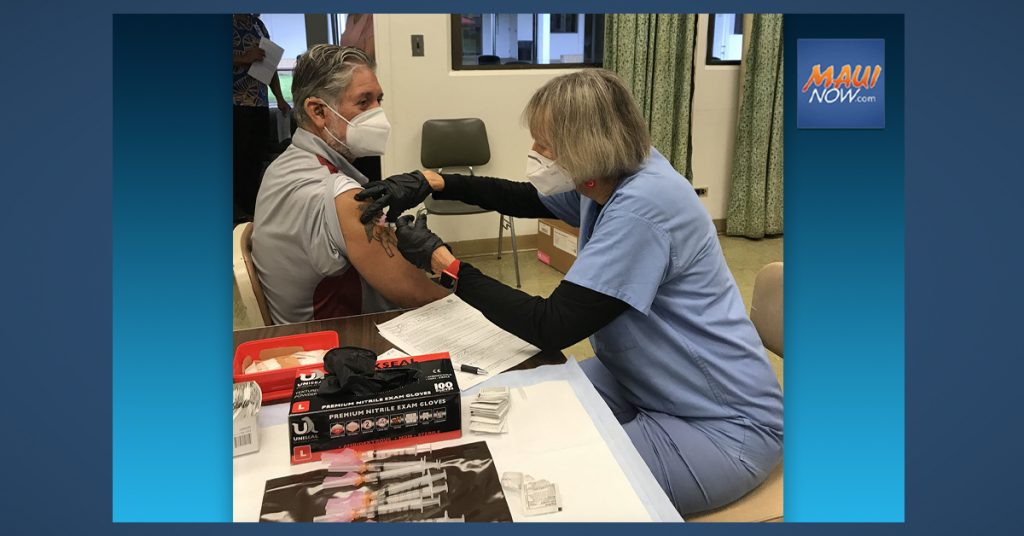Hawai‘i DOH Authorizes Booster Doses for Moderna, J&J Vaccines

The Hawai‘i Department of Health announced it will adopt the US Center for Disease Control and Prevention’s guidelines on COVID-19 booster doses for Moderna and Johnson & Johnson vaccines.
“Boosters doses are common for many vaccines and will provide additional protection to Hawai‘i residents at higher risk for severe illness or occupational exposure,” said Director of Health Dr. Elizabeth Char, in a press release announcement. “Boosters are expected to be widely available across the state, and CDC’s mix-and-match policy will allow for additional flexibility. DOH’s first priority will remain encouraging unvaccinated Hawai‘i residents to complete their initial vaccine series.”
Moderna vaccine recipients: A single booster dose is recommended for certain populations at least six months after the second dose:
- Individuals 65 years and older
- Individuals age 18+ who live in long-term care settings
- Individuals age 18+ who have underlying medical conditions
- Individuals age 18+ who work or live in high-risk settings
Moderna booster doses are half of an initial dose.
Johnson & Johnson vaccine recipients: A single booster dose is recommended for all Johnson & Johnson recipients at least two months after the first dose. Johnson & Johnson recipients can also elect to receive a single booster dose of the Pfizer or Moderna vaccines.
Mixing and matching of all US-approved COVID-19 vaccines is allowed. Interchangeability of shots will provide additional flexibility. All vaccines are effective in reducing the risk of severe disease, hospitalization and death, even against the Delta variant.
First and second doses will continue to be prioritized over any booster doses. DOH officials say the best way to protect Hawai‘i families and communities is to ensure that unvaccinated Hawai‘i residents complete their initial vaccine series.
Individuals unsure if they qualify for a booster should check with their healthcare provider.
Individuals are still considered fully vaccinated 14 days after their primary vaccine series. DOH officials say booster doses provide additional protection, but the primary series continues to protect vaccinated individuals against severe illness, hospitalization and death.












